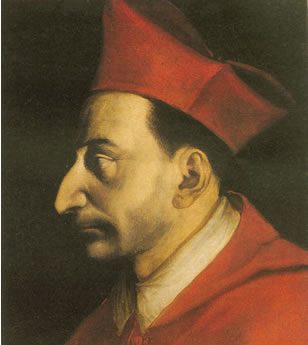St. Charles Borromeo was born in 1538. He was the son of noble parents, born into luxury, but early on, he made it clear that worldly wealth did not appeal to him. Charles desired to serve the Church, and asked his father to give away the majority of his inheritance to the poor.
Although Charles could not fully escape his class, he used the privileges afforded to him to benefit the Church. At the age of 22, his uncle was elected as Pope Pius IV, and Charles served as a papal diplomat and supervisor of major religious orders. His chief forms of relaxation were music and literature, and he considered renouncing even these pleasures to join a monastery, but found himself urgently needed during the Council of Trent.
In 1545, the Church had begun its 19th ecumenical council, but they experienced many delays. The twofold mission of Trent was to clarify Catholic doctrine against Protestant objections, and reform longstanding problems within the Church. As a papal representative, Charles participated in the conclusion of the Council in 1563, when he was only 25. He also helped assemble the comprehensive summary, the Roman Catechism, or Catechism of the Council of Trent.
After this, Charles was rewarded with more responsibilities — he was named an archbishop and cardinal only months later. When he took over the diocese of Milan, he found virtually no administration or leadership, and got to work establishing schools, seminaries, and centers for religious life. These drastic reforms made him some enemies, and a group of disgruntled monks even tried to kill him, but Charles miraculously survived.
Charles’ efforts were especially fruitful. He initiated the work of the Confraternity for Christian Doctrine and the first “Sunday School” classes. He also welcomed English Catholics who fled to Italy to escape anti-Catholic laws.
Diligence, frequent travel, and his ascetic lifestyle eventually took their toll, and Charles died at the age of 46 on November 3, 1584. He was canonized 26 years later, in 1610, and is the patron of catechists and catechumens.

